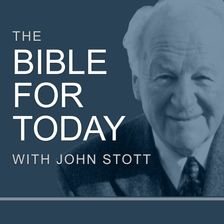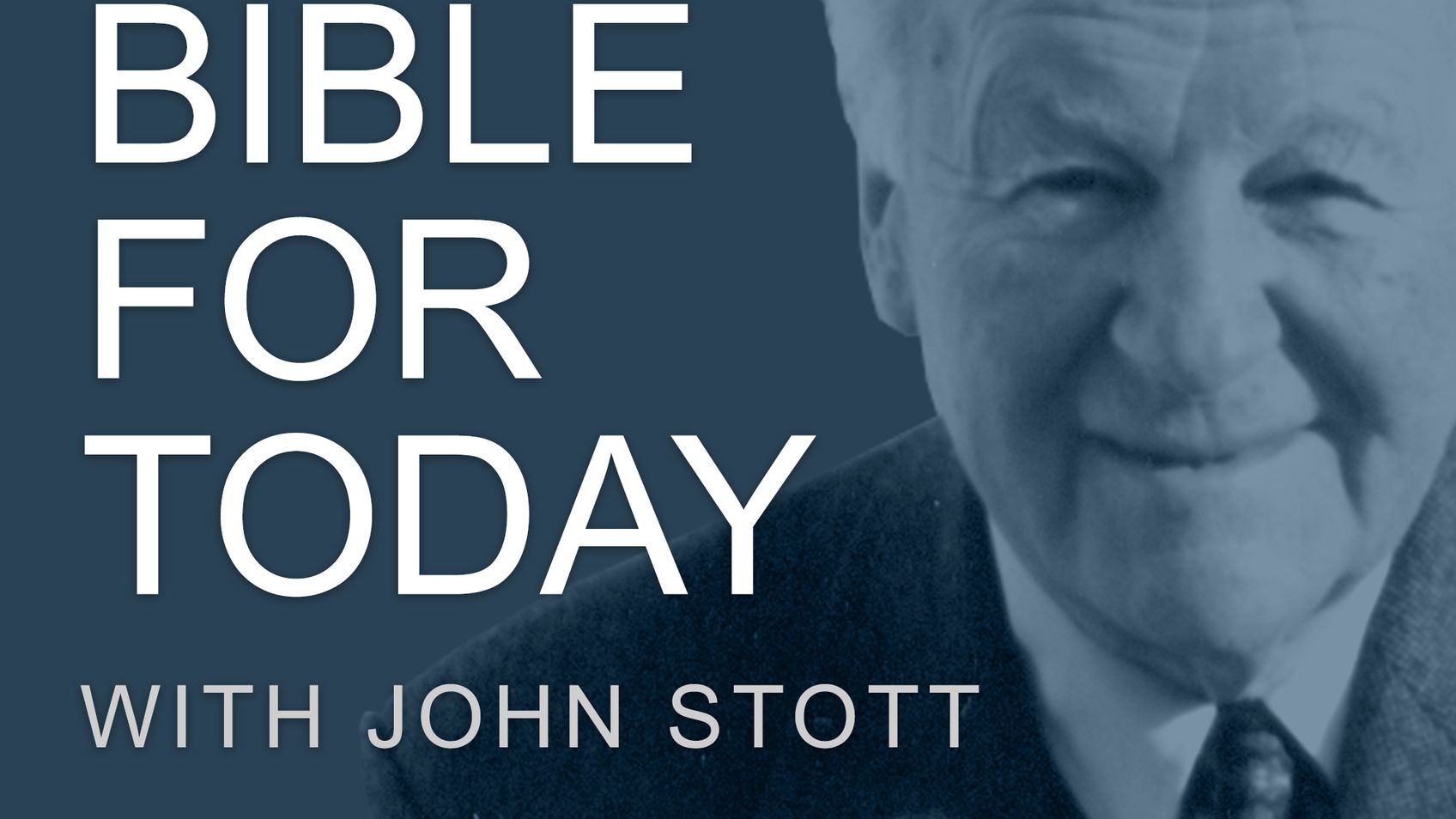The Conscience - Part 1
August 29, 2021

The Bible for Today with John StottPremier
John Stott shows us that our conscience is what makes us different from the animal kingdom. He explains the place of our conscience in Christian conversion, Christian relationships and Christian maturity.
More From The Bible for Today with John Stott

The Conscience - Part 2
The Bible for Today with John Stott
September 5, 2021
John Stott shows how as Christians we can put the cross of Christ between the devil and our conscience. But he also shows how it is possible to deaden

The Cause of His Death - Part 1
The Bible for Today with John Stott
September 12, 2021
John Stott explains why God cannot simply forgive our misdemeanours, as we would forgive one another, and why it was necessary for Jesus to die for us

The Cause of His Death - Part 2
The Bible for Today with John Stott
September 19, 2021
John Stott takes us to the Last Supper as Jesus explains to His disciples the significance of the bread and wine. John explains what Jesus meant when

The Mind - Part 2
The Bible for Today with John Stott
August 22, 2021
John Stott shows us how we need to use our minds in order to worship God. He also shows us that using our mind is necessary when we place our faith in

The Mind - Part 1
The Bible for Today with John Stott
August 15, 2021
John Stott explains that the mind is the central citadel of the human personality that directs our human operations. He sets God's purpose for us to t

All By Myself - Part 2
The Bible for Today with John Stott
August 8, 2021
John Stott shows us that if marriage is seen as a blessing, singleness should not be seen as a curse. He warns against believing that singleness makes
More on OpenTheo

Are Demon Possessions and Exorcisms in the New Testament Literal?
#STRask
December 11, 2025
Questions about whether references to demon possessions and exorcisms in the New Testament are literal, how to talk to young children about ghosts, an

E. Calvin Beisner: Climate and Energy Policy
Knight & Rose Show
January 4, 2026
Wintery Knight and Desert Rose welcome Dr. E. Calvin Beisner to discuss climate and energy policy. They explore Biblical dominion and stewardship, con

Is 1 Corinthians 12:3 a Black-and-White Tool for Discernment?
#STRask
October 27, 2025
Questions about whether the claim in 1 Corinthians that “no one can say ‘Jesus is Lord’ except in the Holy Spirit” is a black-and-white tool for disce

The Making of the American Mind with Matthew Spalding
Life and Books and Everything
February 2, 2026
The United States is unique in how much attention it pays to its founding, its founders, and its founding documents. Arguably, the most famous and mos

How Do You Justify Calling Jesus the Messiah?
#STRask
December 18, 2025
Questions about how one can justify calling Jesus the Messiah when he didn’t fulfill the Hebrew messianic prophecies, and whether the reason for the v

Is It a Sin to Feel Let Down by God?
#STRask
November 6, 2025
Questions about whether it’s a sin to feel let down by God and whether it would be easier to have a personal relationship with a rock than with a God

Can You Recommend Good Books with More In-Depth Information and Ideas?
#STRask
January 22, 2026
Questions about good books on Christian apologetics, philosophy, and theology with more in-depth information and ideas, and resources to help an intel

Prove to Me That Jesus Is Not a Created Being
#STRask
January 26, 2026
Questions about why we should think Jesus is not a created being, and what it means to say God became fully human if part of being human means not bei

Can You Provide Verifiable, Non-Religious Evidence That a Supernatural Jesus Existed?
#STRask
November 10, 2025
Question about providing verifiable, non-religious evidence that a supernatural Jesus existed.
* I am an atheist and militantly anti-god-belief. Ho

Does God Hear the Prayers of Non-Believers?
#STRask
February 26, 2026
Questions about whether or not God hears and answers the prayers of non-believers, and thoughts about a church sign that reads (as if from God), “Just

Conservatism and Religious Freedom with John Wilsey
Life and Books and Everything
October 27, 2025
What is conservatism? And why does it go hand in hand with religious freedom? How should we think about the American experiment of ordered liberty? Ha

Keri Ingraham: School Choice and Education Reform
Knight & Rose Show
January 24, 2026
Wintery Knight and guest host Bonnie welcome Dr. Keri Ingraham to discuss school choice and education reform. They discuss the public school monopoly'

How Can We Know Who Is Teaching the Same Gospel Paul Taught?
#STRask
February 16, 2026
Questions about how we can know who is teaching the same gospel Paul taught, and whether or not Jeremiah 1:5 supports the idea that we pre-existed in

Sense, Sensibility, and Adam Smith with Jan Van Vliet
Life and Books and Everything
February 16, 2026
This year is a special anniversary for the United States as Americans celebrate 250 years of independence. But 1776 was an important year in more ways

The Man on the Middle Cross with Alistair Begg
Life and Books and Everything
November 10, 2025
If you haven’t seen the viral clip, go see it right now. In this episode, Kevin talks to Alistair about the preaching clip he didn’t intend to give, h
